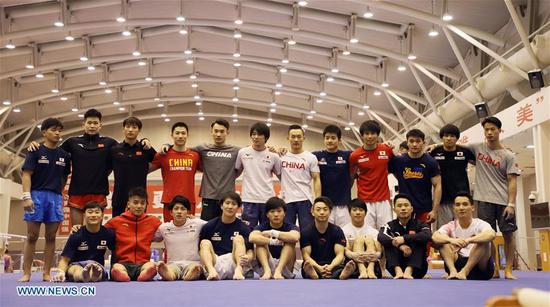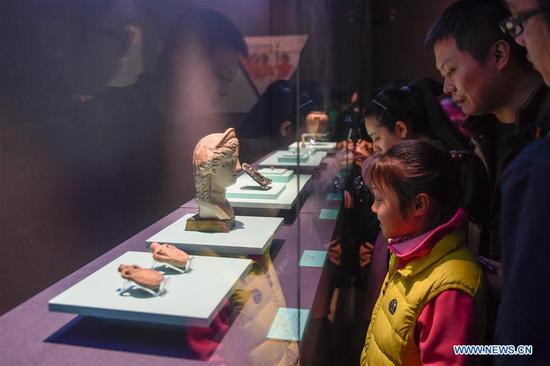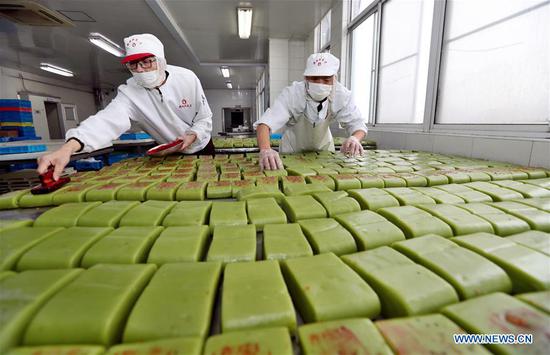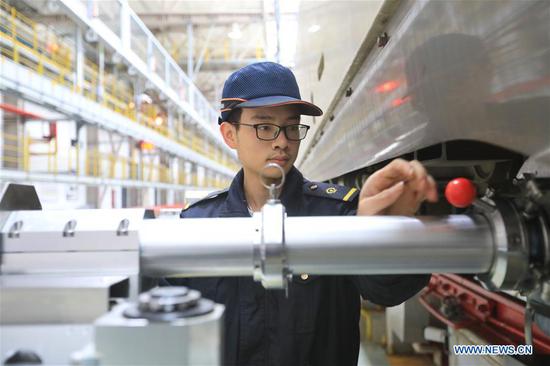Tesla Inc has set a weekly production goal of 3,000 Model 3 vehicles at its Shanghai Gigafactory, and this could be achieved because of lessons the U.S. electric car producer learned in its birthplace of the U.S.. But it may not be able to sell the cars as fast as it makes them, analysts said.
Tesla's participation in the Chinese electric car industry will make the competition more intense.
It will also trigger competitors' innovation and lead the industry in a sound, market-oriented direction, according to analysts.
Tesla has reported a profit for the second consecutive quarter. It also said it hoped its Gigafactory Shanghai could produce 3,000 Model 3 vehicles per week initially, rising to 10,000 vehicles per week on a sustained basis.
The comments were contained in the company's financial results released on Wednesday (U.S. time).
"Barring unexpected challenges with Gigafactory Shanghai, we are targeting annualized Model 3 output in excess of 500,000 units sometime between Q4 of 2019 and Q2 of 2020," the company's fourth-quarter and full-year 2018 update report said.
Analysts said Tesla's Shanghai factory could achieve the goal. They said that productivity will not be a problem for the company because of its experience of the past four years.
In the fourth profitable quarter overall since its June 2010 IPO, Tesla delivered 63,359 Model 3 vehicles to customers in North America.
It said that "the market opportunity for the Model 3 in Europe and China exceeds North America, based on the most recent sales of mid-sized premium sedans."
"Tesla made many detours in the past four years and it has learned enough in the U.S.," Mei Songlin, a senior industry analyst based in Shanghai, told the Global Times on Thursday. Mei added that there won't be a problem for Tesla's Shanghai factory to reach its goal.
However, what concerns analysts is sales.
"It will be difficult for Tesla to sell 12,000 vehicles a month if it doesn't lower the price in China," said John Zeng, a Shanghai-based analyst at LMC Automotive
Even though the company lowered the Model 3 price from 540,000 yuan ($80,460) to 499,000 yuan at the end of last year, it is still high for the majority of Chinese electric car buyers, analysts said.
"The average car buyer in China is 35 years old, and the majority of car buyers are people born after the 1990s. Tesla needs to focus on this group of people," Mei said.
More domestic new-energy vehicle brands will offer new products in 2019, such as start-ups Nio, WeltMeister and Xpeng Motors, said Zeng. As a result, Tesla's participation in China will lead to a rat race in the country's electric car industry, Zeng noted.
Domestic sales of electric vehicles (EVs) grew 60 percent last year to 1.26 million units, according to data from the China Association of Automobile Manufacturers.
With Tesla's mass production, the U.S.-based EV leader will pose a threat to its Chinese competitors.
"After Tesla builds its Shanghai factory, domestic companies will definitely improve their production efficiency and work harder on innovation," Mei said.


















































